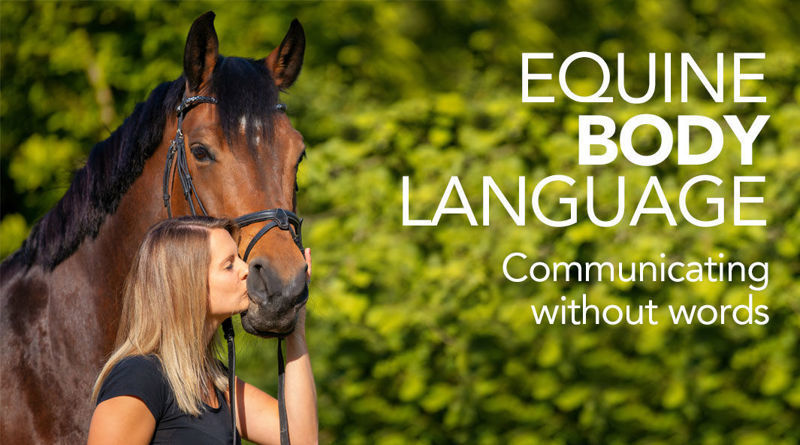You and your horse both communicate via body language and understanding your horse's body language, as well as your own will help improve your relationship and how you understand each other.
Horses are able to tell the difference between submissive and dominant body language and can even tell the difference between happy and angry facial expressions.
Horses use their whole body to communicate with us however, how well do you know what your horse is trying to say?
Knowing what your horse is trying to say to you can create a stronger and safer relationship between you and your horse. The horse communicates via subtle movements of the ears, eyes, mouth and nostrils also using their tails, and feet and body movements. Spending time just watching your horse in the field and when stabled, will allow you to understand how your horse communicates even when it is not directly with you.
To get started, here are some easy signals to look for to work out what your horse is trying to tell you:

The Equine ‘smile’ – this is something you have probably seen your horse do when they are being groomed either by a mate or by you. Look at their facial expression and you will notice half closed eyes, stretched upper lip, which may twitch, and ears pointing backwards. They may also tilt their neck.

“I don’t like this” – tail swishing, shaking the head and wide eyes all indicate that the horse isn’t enjoying the current situation, whether that’s being groomed or being ridden.

“I’m in pain” – horses that are ill will display sings of dullness and wont be very alert, not interacting with you or others. If they are in pain they may display guarding behaviours or even kick or bite at the painful area i.e., the abdomen.
Horses rely on body language as a form of communication as it protects them from danger. Not paying attention to your horse's body language could lead to them not communicating with you so paying attention to their cues is important and helps to deepen the interspecies relationship.












